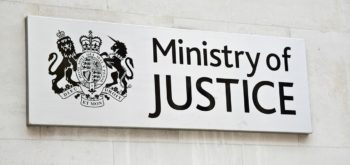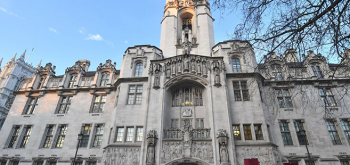More than nine out of 10 people supported the idea of of public funds being used to ensure access to justice, according to a survey commissioned by the Law Society. According to the solicitors’ group, this is the largest survey of its kind ever conducted with pollsters YouGov drawing on 28,663 responses and found that 45% strongly backed legal aid with 92% in favour.
More than seven out of 10 respondents (71%) backed legal aid for domestic violence victims, with two thirds (66%) supporting public funding for actions against the police and more than half (53%) of respondents felt that public funding should be given to individuals dealing with welfare and benefits problems.
The Legal Aid, Sentencing and Punishment of Offenders Act 2012, commonly known as LASPO, came into force in April 2013, cutting entire areas of law from the scheme such as housing (except homeless), family (except domestic violence), Immigration and welfare benefits. The Law Society and others argued at the time LASPO was introduced that it would significantly reduced access to justice particulalrly for vulnerable who would struggle to find adequate support.
In a subsequent review of the effects of LASPO in 2017, the Law Society identified a number of so-called legal aid ‘deserts’, areas of England and Wales with little to no providers of publicly-funded services. The president of the Law Society, Simon Davis, stated that the introduction of LASPO has led to ‘a huge influx of people navigating the justice system unrepresented – with no legal advice to help them enforce their rights’. ≈
The Law Society survey also found that those classed as having low levels of ‘legal confidence’, (defined as ‘confidence they could achieve personally achieve a fair and positive outcome in legal scenarios’) were less likely to instruct a solicitor, with 54% of those reporting a legal issue not receiving professional legal advice, suggesting that a lack of knowledge of legal rights is deterring many from seeking appropriate help.
The evidence gathered in the survey further suggests that many of those entitled for legal aid are unsure as to their eligibility, with more than eight out of 10 of those with a household income of £32,000 and under (85%) answering that they were uncertain as to whether or not they could access government support.
The Ministry of Justice published its review of LASPO in 2019, releasing a Legal Support Action Plan designed to set out the future direction for publicly funded legal services, which offered a limited expansion in the scope of legal aid, as well as plans to free up additional funds. However, many commentators argued that the proposals did not go far enough to reverse the negative impact of the past seven years of Legal Aid cuts.
According to Law Society president Simon Davis continued: ‘One year on from the LASPO review, the government must follow through on their commitment to reassess the availability of legal aid and give the public the access to justice they so clearly support.’







